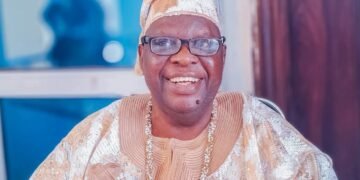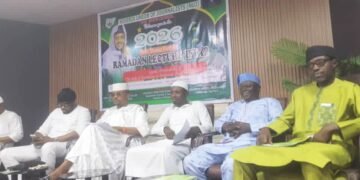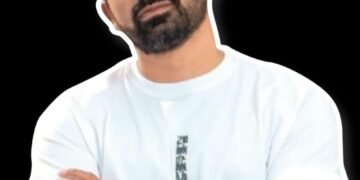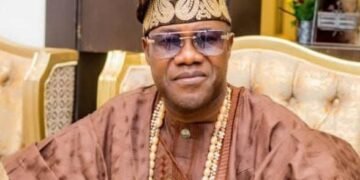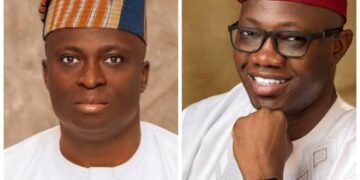Poverty in Nigeria has reached alarming proportions, impacting millions and manifesting itself in various forms throughout the nation. The National Bureau of Statistics (NBS) recently released the “2019 Poverty and Inequality in Nigeria” report, which highlights that 40 per cent of the total population, or almost 83 million people, live below the country’s poverty line of N137,430 ($381.75) per year. The NBS report is based on data from the latest round of the Nigerian Living Standards Survey, conducted in 2018-2019, with support from the World Bank’s Poverty Global Practice and technical assistance from the LSMS program.
This distressing figure positions Nigeria as one of the countries with the highest poverty rates globally. The effects of this dire situation are evident not only in economic terms but also in the lived experiences of countless families grappling with the daily challenges of survival.
Many households struggle to afford necessities, with the rising cost of food further exacerbating an already precarious situation. The inability to secure adequate nutrition significantly affects physical and cognitive development, particularly in children. Reports indicate that malnutrition remains widespread, with severe implications for education, health, and overall well-being. Families often sacrifice their nutritional needs to prioritise other essential costs, illustrating a grim cycle of deprivation.
Healthcare access constitutes another critical aspect that highlights the grave reality of poverty in Nigeria. Many citizens lack access to basic healthcare services, leaving them vulnerable to treatable ailments, preventable diseases, and avoidable death. The burden of healthcare costs leads many to forgo necessary medical treatment, which disproportionately affects the elderly and children. Personal anecdotes from those living in poverty reveal stories of families devastated by illness and unable to seek help due to financial constraints. In some instances, this dire reality results in preventable deaths, ringing alarm bells for urgent intervention and reform across the healthcare system.
As individuals and families endure significant hardships, individuals and organisations, some with good intentions and others for subtle personal gains, have continued to explore Nigeria’s multifaceted poverty. Some churches use free food and basic healthcare evangelism tools, as in the case of Pastor Matthew Ashimolowo Ibadan Crusade. Some politicians also use them to their advantage. The stark realities many face serve as sobering statistics and a profound reminder that these are lives affected by systemic failings. The urgency for change has never been greater.
Tragic Consequences: The Christmas Children Funfair Incident in Ibadan
One attempt by individuals to address these pressing challenges was the Christmas Children’s Funfair, organised by Women in Need of Guidance and Support. The Funfair’s founder is believed to be Queen Naomi Silekunola, the ex-wife of Ooni of Ife Oba Adeyeye Ogunwusi. Its objective was to give N5,000 to 5,000 children and to make free food available to attendees. As early as 5:00am, children, accompanied by parents, started converging on the Islamic High School, Basorun venue. It was learnt that by 6:00am, the crowd had become larger and the venue’s gate remained locked with the organisers inside it. According to reports, the attempt to open the gate led to the stampede. Many of the people are struggling to enter at the same time. In that instance, many people fainted, others fell, mostly children, and were trampled upon. Not less than 30 children were reported dead! So sad!!
The event was intended to be a joyful celebration for families struggling with poverty in Nigeria; unfortunately, it quickly became a chilling example of how dire living conditions can lead to devastating consequences.
On that fateful day, the event attracted a massive crowd, primarily composed of impoverished families seeking a brief respite from their daily struggles. The desperation for basic survival was crucial in the following tragic events.
This incident highlights the grim reality many face in Nigeria, where the quest for even the simplest pleasures can turn deadly. The emotional turmoil caused by the loss of so many young lives serves as a painful reminder of the tragic consequences of poverty. While the Christmas children’s funfair was meant to bring joy, it instead exposed the vulnerabilities and desperation felt by many Nigerians. The accident not only shattered the hopes of families looking for solace but also drew attention to the urgent need for change in a system that allows such devastating occurrences to unfold.
Healthcare Crisis: The Poor State of Medical Services
Nigeria’s healthcare system is characterised by a profound crisis that significantly affects the population, particularly the poor. While the wealthier segments of society often have the means to seek the best medical care abroad or at the best centres in Nigeria, most Nigerians are left to navigate a system plagued by overwhelming inadequacy. The disparities in healthcare access are alarming, creating a two-tier system where the affluent circumvent local facilities while the underprivileged face deteriorating public health services.
One prominent example of this failing system is the University College Hospital in Ibadan, a key regional referral centre for many. Patients at this facility frequently contend with persistent challenges, including severe power outages that disrupt essential medical procedures. Such interruptions can hinder life-saving treatments and surgical operations, jeopardising patient well-being. Moreover, the hospital suffers from a critical shortage of medical supplies and personnel, further complicating the delivery of adequate health services.
The lack of investment in healthcare infrastructure exacerbates the situation, leaving public facilities under-resourced and ill-equipped to handle the burgeoning population of patients. Essential medical equipment is often outdated or non-functional, and clinics routinely experience shortages of medicine, leading to a reliance on alternative treatments that may not meet established medical standards. The consequences of this reality are grave; patients are often forced to pay exorbitant fees at private facilities or travel considerable distances to receive appropriate care, adding to their financial strain.
Therefore, Nigeria’s healthcare crisis necessitates urgent reform and investment. A system that fails to provide essential medical attention compounds the plight of those in need, leaving the underprivileged at the mercy of an inadequate healthcare landscape, self-medication, and uncoordinated alternative treatment.
Suffice it to say that only God can kill the wealthy Nigerians, as they can practically ‘buy’ life and make the poor live, as they can’t afford the ‘cheapest’ medication or a square meal!
A Call for Government and Divine Intervention: Seeking Hope and Change
The pressing issues of poverty and inadequate healthcare in Nigeria demand an urgent collective response. While governmental and non-governmental organisations play critical roles in addressing these challenges, it is evident that a deeper, transcendent solution is necessary. Many citizens turn to faith as a source of resilience, believing that divine intervention can manifest tangible change in their lives. In this spirit of faith, we encourage a united front in prayer and activism to seek hope and transformative change for the disadvantaged.
Prayer can be a powerful tool, nurturing a sense of community and shared purpose among diverse groups. When individuals pray collectively for an end to poverty, a more robust healthcare system, and equitable opportunities, the power of their collective faith can foster a renewed sense of hope. It can inspire those struggling to believe that change is possible and motivate others to contribute meaningfully to alleviating hardship. By inviting divine intervention into this heavy dialogue, we open ourselves to new possibilities and actions that can be guided by compassion and solidarity.
Like the Ibadan Discourse Group (IDG) rightly suggested in a statement issued by its Chairman, Chief Adebisi Adesola, the government at all levels should do more to lift more people out of poverty. The Federal Government should quickly and optimally fix the economy so that it will reflect in the pockets and lives of the average people. The Nigerian government at all levels should take a serious and deeper look at its social investment programme and do more concretely to lift many people out of the multidimensional poverty ravaging the land so that most Nigerians can, at least, feed themselves.
Moreover, raising awareness about the plight of the impoverished can play a crucial role in advocating for systemic changes. Social media platforms, community gatherings, and educational programmes can serve as avenues to highlight the realities faced by those in dire need. Engaging discussions around poverty elimination strategies and healthcare reform is essential in mobilising support from individuals and civil society. It is imperative for every Nigerian, and indeed the global community, to step forward as advocates for those who remain voiceless.
As we seek to address the alarming conditions of poverty and healthcare in Nigeria, it is vital to blend faith with activism. A combined resolve to pray, raise awareness, and advocate for systemic change could usher in a new epoch of hope and uplift countless lives from despair, fostering a more equitable society.
*Mimiola is an award-winning journalist





